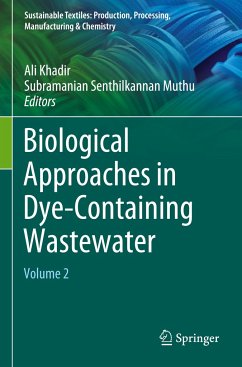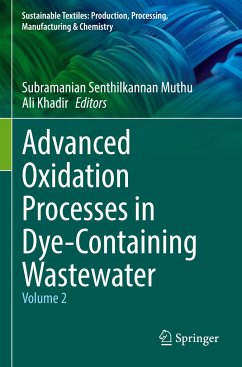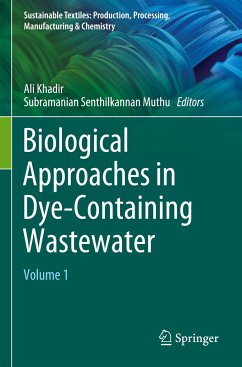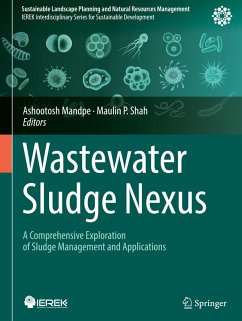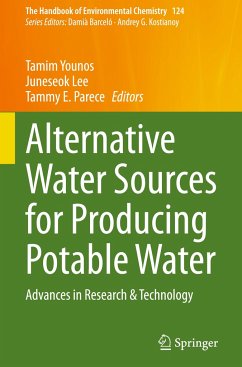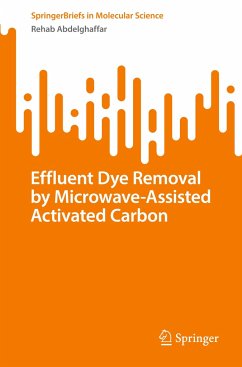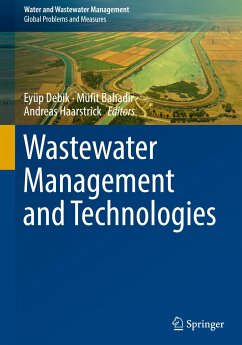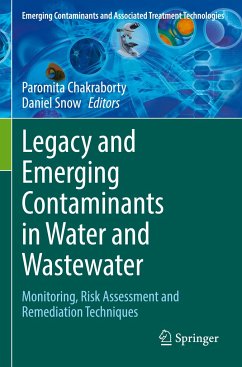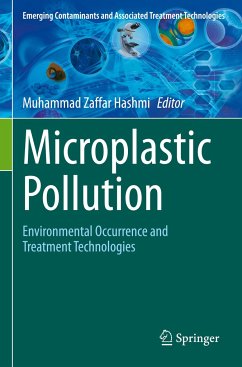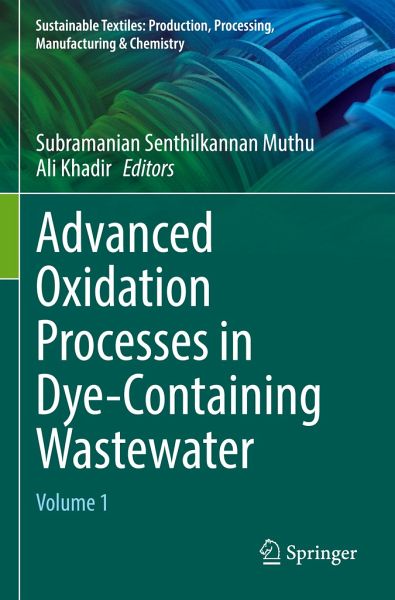
Advanced Oxidation Processes in Dye-Containing Wastewater
Volume 1
Herausgegeben: Muthu, Subramanian Senthilkannan; Khadir, Ali
Versandkostenfrei!
Versandfertig in 6-10 Tagen
76,99 €
inkl. MwSt.

PAYBACK Punkte
38 °P sammeln!
Among various industries releasing wastewater into the environment, printing, dyeing and textile industries are of great importance as they frequently contain high amounts of colorful compounds having high chemical and biological oxygen demands. Health related effects of colorants are extensively reported; which necessitates the seriousness of dye removal from water and wastewater. The utilization of advanced oxidation processes (AOPs) in dye degradation has gained considerable attention recently due to the release of high energetic radicals as oxidants that are capable of removing dye compoun...
Among various industries releasing wastewater into the environment, printing, dyeing and textile industries are of great importance as they frequently contain high amounts of colorful compounds having high chemical and biological oxygen demands. Health related effects of colorants are extensively reported; which necessitates the seriousness of dye removal from water and wastewater. The utilization of advanced oxidation processes (AOPs) in dye degradation has gained considerable attention recently due to the release of high energetic radicals as oxidants that are capable of removing dye compounds. This Volume 1 presents versatile applications of AOPs in dye removal. Accordingly, processes such as Ozone-based AOPs, UV irradiation, catalytic AOPs, etc are discussed with the aim of dye removal under different operational parameters. The role of different nanoparticles is also investigated. By presenting the fundamentals of AOPs as well as recent advances, this book is useful for environmental engineers and chemists who are concerned with wastewater pollution and treatment.





